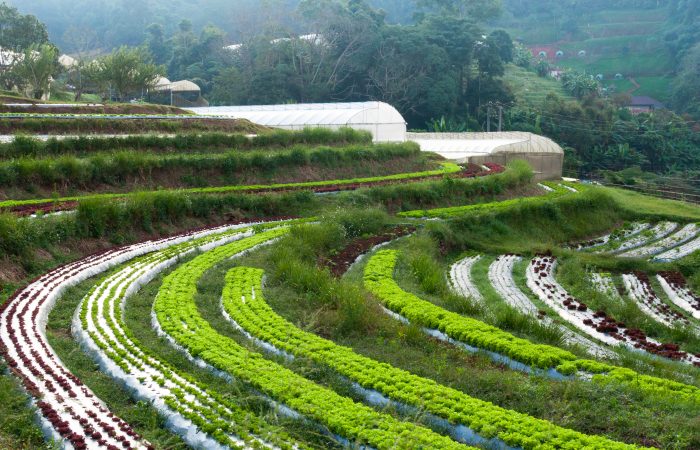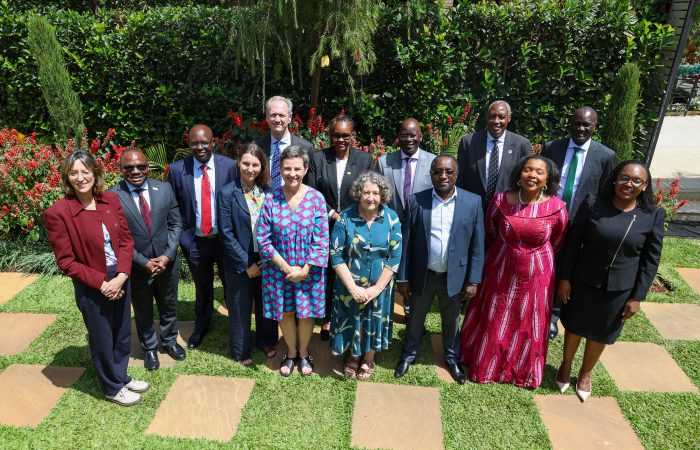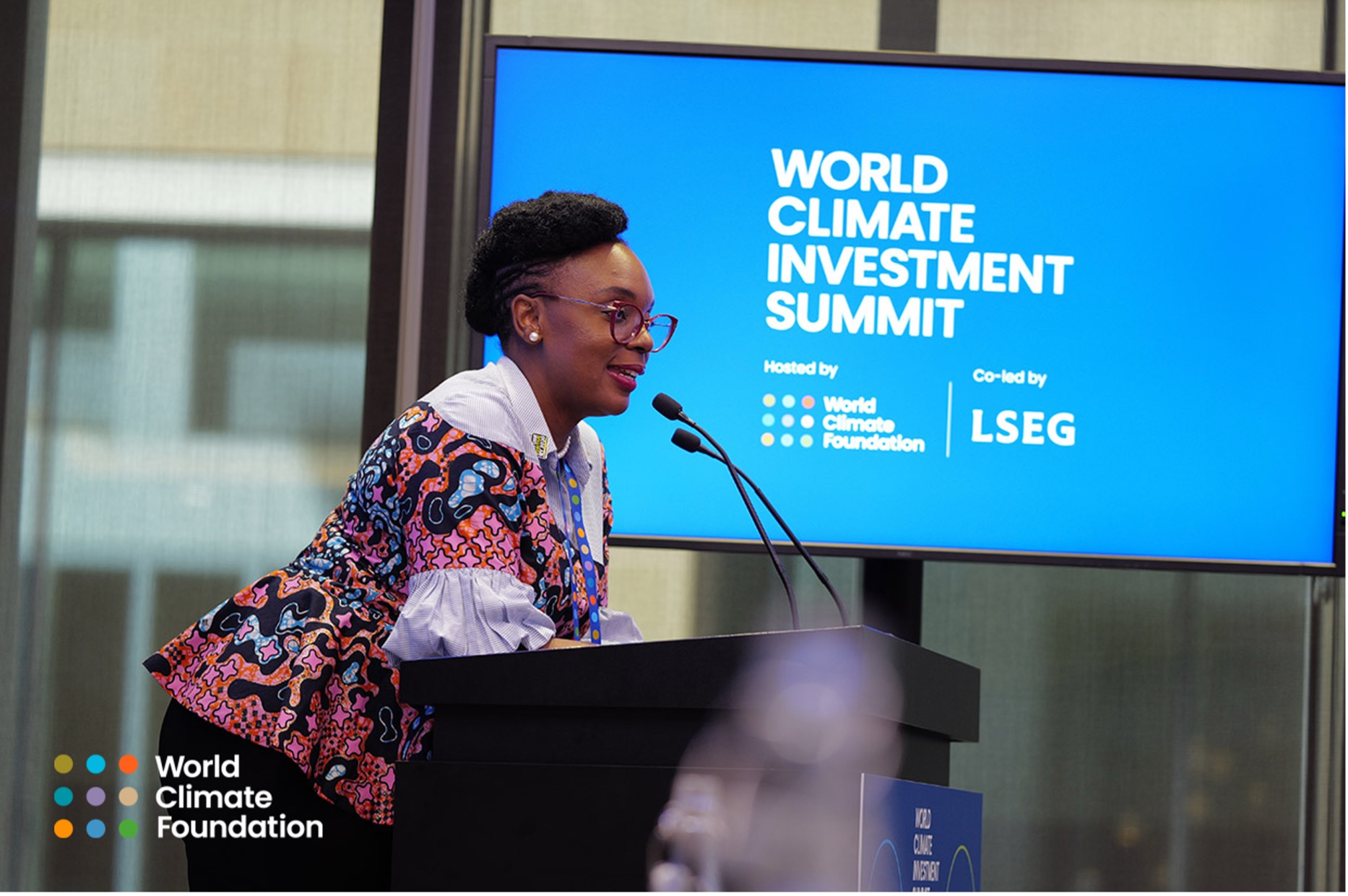
As written by Josh Ayers, Associate Member of ANCA Secretariat & Senior Research Impact Fellow in The Nature & Climate Impact Team at the University of Exeter
The Dawn of Africa’s Green Gold Rush
In the heart of London’s financial district this past June, something extraordinary happened. As 45,000 climate leaders gathered for the largest London Climate Action Week in history, a powerful narrative emerged from the iconic halls of the London Stock Exchange—one that positions Africa not as a recipient of climate aid, but as the world’s next frontier for transformative nature-based investments.
The message was crystal clear: Africa’s vast natural capital isn’t just an environmental treasure to be protected; it’s an economic powerhouse waiting to be unleashed. And the financial world is finally waking up to this reality.
From rhetoric to revolution: The shift that changes everything
London Climate Action Week 2025 marked a decisive turning point in the global climate conversation. The endless debates about why or when to act have given way to an urgent focus on how—and nowhere was this shift more evident than in discussions about Africa’s natural capital potential.
“Nature is the bedrock of the world’s financial systems and economies. Without healthy ecosystems, there can be no sustainable economy, food security, or public health.” – Ruth Davis OBE
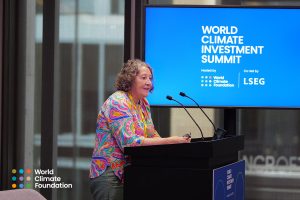
At the World Climate Investment Summit, hosted at the London Stock Exchange, a special session titled “Unlocking Nature Finance in Africa: Bridging Capital, Projects & Policy” brought together visionary leaders who are redefining what it means to invest in nature. The African Natural Capital Alliance (ANCA) and FSD Africa emerged as key catalysts in this transformation, showcasing groundbreaking approaches from its member organisations that merge conservation with real economic returns.
The $600 billion opportunity hidden in plain sight
While the voluntary carbon market struggles to reach $2 billion globally, Justine Sequeira from Forested revealed a staggering truth: pollination services alone represent a $600 billion market. This isn’t about abstract environmental benefits—it’s about the fundamental natural infrastructure that powers global agriculture and trade.
“Do not believe anyone who tells you that these are co-benefits, these are real economy gains in yield and quality… This is the whole ballgame. This is the real economy underlying natural capital that powers coffee as a $200 billion industry.” – Justine Sequeira, Forested.
Consider this: On degraded East African farms where biodiversity has been stripped away, simple investments in pollinator-friendly practices can increase yields by 40% in the first year with virtually zero input costs. This isn’t charity—it’s smart business that delivers returns while healing the land.
Community-centred conservation: The game-changing model
Amidst all the complexities of global climate challenges, their tangled webs of causal chains, and the financial mechanisms and policy tools we seek to address them, Viraj Sikand of Earth Acre highlighted a fundamental truth: most of the world’s remaining nature exists on community lands. But because “nature doesn’t pay,” these lands face constant pressure for conversion to other uses.
Earth Acre’s solution? Direct payments to landowners that bridge the economic gap between conservation and land conversion. In Kenya’s Maasai Mara, where pastoralism and ecotourism generate about $40 per acre while fencing and land-use change can bring $100, Earth Acre creates a transparent system where global corporations can directly fund conservation at the community level.
“Most of the last remaining nature is on community lands. But because nature doesn’t pay, land gets converted, leading to profound nature loss.” – Viraj Sikand, Earth Acre
This isn’t top-down conservation—it’s bottom-up economic transformation that puts local communities at the center of the solution.
Financial innovation meets African ingenuity
The financial instruments being pioneered for African nature finance are as innovative as they are practical. Forested’s “B-Bond” represents a new breed of blended finance that doesn’t rely on charismatic megafauna or eco-tourism. Instead, it is tied directly to agricultural productivity gains from enhanced pollination services.
Alessandro Scalco from RMB South Africa emphasized the need for simplicity in bringing corporates into nature finance. Rather than overwhelming boards with complex instruments, RMB is pioneering a spectrum approach—starting with simple use-of-proceeds bonds linked to nature KPIs and gradually moving toward more sophisticated performance-based instruments.
“Our economic system actually values dead nature. So be it timber, be it fossil fuel, be it food that’s plucked out of the trees, what we need is to also value and price living nature.” – Akanksha Khatri, World Economic Forum
The UK-Africa Partnership: A model for global action
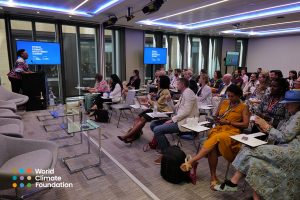
The UK government’s announcement of £30 billion annual investment in clean energy infrastructure through 2035 sends a powerful signal. But more importantly, the launch of the Nature Finance Innovation Lab by Financial Sector Deepening Africa, backed by the UK government, demonstrates a commitment to African-led, nature-first projects.
This isn’t about imposing external solutions—it’s about supporting African innovation and leadership in developing scalable nature finance models that can be replicated globally.
Why Africa, Why now?
Africa’s unique position in the global nature finance landscape stems from several converging factors:
- Unparalleled Natural Assets: From the vast savannas of East Africa to the rainforests of the Congo Basin, Africa hosts ecosystems that are critical for global climate regulation and biodiversity.
- Demographic Dividend: With the world’s youngest population, Africa has the human capital to drive innovation in nature-based solutions.
- Leapfrog Opportunity: Without legacy infrastructure constraints, African countries can pioneer new models that integrate nature into economic development from the ground up.
- Real Economy Returns: Beyond traditional carbon credits, African nature investments are increasingly tied to tangible economic outputs—higher crop yields, improved supply chain resilience, and sustainable livelihoods.
The path forward: From vision to action
The momentum from London Climate Action Week 2025 is clear, but the real work begins now. FSD Africa and ANCA are at the forefront of translating this enthusiasm into concrete investment opportunities. Their work mobilises nature finance for:
- Policy Enablement: Working with governments to create enabling environments for nature finance
- Investment Pipeline Development: Combining acceleration and instruments
- Nature-Related Data, Metrics, & MRV: Creating new instruments that align investor returns with conservation outcomes
- Nature Finance Capacity Building: Supporting African financial institutions to integrate nature into their portfolios
Join the Revolution: Your Role in Africa’s Nature Future
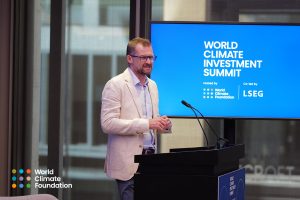
The transformation of Africa’s natural capital from a conservation concern to an investment opportunity represents one of the most exciting frontiers in sustainable finance. But this revolution needs partners—investors who see beyond traditional returns, corporations seeking authentic nature-positive strategies, and development partners committed to African-led solutions.
“The objective is not to say that I am going to price nature, but how am I going to value a nature positive outcome and make sure that the stewards who are actually delivering those outcomes are rightfully paid for that.” – Akanksha Khatri, World Economic Forum
Whether you’re an ESG investor looking for innovative investment strategies, a corporation seeking to align your brand values with real conservation impact, or a philanthropic organization wanting to catalyse systemic change, the African Natural Capital Alliance provides the platform to turn intention into action.
The time is now
As Anne-Marie Chidzero, Chief Investment Officer at FSD Africa Investments, noted, just a few years ago, African voices were barely present in global biodiversity conversations. Today, Africa is not just at the table—it’s setting the agenda.
The convergence of political will, financial innovation, emerging business models, and on-the-ground expertise creates an unprecedented opportunity. The question isn’t whether to invest in Africa’s natural capital—it’s how quickly we can scale these solutions to meet the urgency of our climate and biodiversity crises.
Ready to be part of Africa’s nature finance revolution? Engage with the African Natural Capital Alliance (ANCA) to discover how you can invest in a future where nature and prosperity go hand in hand. ANCA will be hosting events at Building Bridges in Geneva and at New York Climate Week later this years. We are also looking forward to the ANCA Summit scheduled for 7-9 October 2025 in Cape Town, South Africa in the run-up to the G20 Summit. For more details on investment opportunities, upcoming events, and how to join a growing community of leaders committed to unlocking Africa’s natural capital potential.
The seeds planted at London Climate Action Week 2025 are ready to bloom. The only question is: will you help them grow?
The Nature & Climate Impact Team at the University of Exeter are Knowledge Partners to ANCA


